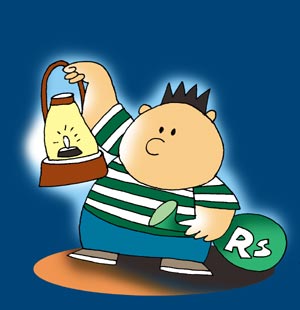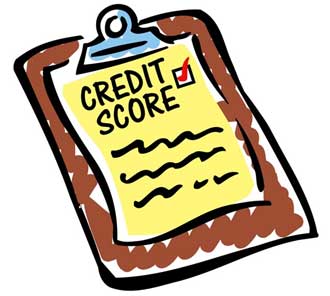 | « Back to article | Print this article |
Credit score vs credit report: Do you know the difference?
To most of us they are one and the same and are often used interchangeably in conversation. But they are not the same thing.
Credit scores and reports are still relatively new for Indian people. To most of us they are one and the same and are often used interchangeably in conversation. Though credit scores and credit reports are interrelated, they are not the same thing.
Chetan Shah, a successful businessman, applies for a credit card. He was told by the bank that his credit card application was rejected because of some delays in payment of credit card bills last year. The delays were due to a dispute and showed up on his credit report.
Chetan was surprised that the bank knew about a dispute he had with another bank. He was under the impression that with a credit score of 720 he would pass muster and his credit card application would be accepted.
What Chetan does not realise is that there is a distinction between a credit score and a credit report. While a credit score is an excellent indicator of what is the overall picture looks like, it is the credit report which has the details.
The author is a credit expert with 10 years of experience in personal finance and consumer banking industry and another 7 years in credit bureau sector. Rajiv was instrumental in setting up India's first credit bureau, Credit Information Bureau (India) Limited (CIBIL). He has also worked with Citibank, Canara Bank, HDFC Bank, IDBI Bank and Experian in various capacities.
Credit score vs credit report: Do you know the difference?
Credit score: A quick glance
A credit score is a statistical compilation of the facts that are present in your credit report. It puts into numbers various borrowing and payment patterns and histories. The credit score predicts the probability of customers defaulting on credit. The variables that go into shaping the credit score include past payment history, balance outstanding, credit account status, age of accounts etc.
There are three major credit bureaus in India -- CIBIL, Experian and Equifax. The scoring pattern of each bureau is somewhat different. CIBIL has a score band of 300 to 900 whereas Experian has 1 to 1000 and Equifax has a range of 1 to 999.
When a credit application comes across the table of a credit manager, her/his first judgement will be formed on the basis of the person's credit score. There is a high chance that your credit application will be rejected purely on the basis of credit score if your score is below 600 (we take the scores of the most commonly used bureau i.e. CIBIL).
Between 600-750 or so the credit risk assessment is done on the basis of your credit application as well as a detailed scrutiny of the credit report. Getting credit is nearly sure shot when the score is above 750 unless the credit report shows some strongly adverse behaviour especially in the recent past.
Credit score vs credit report: Do you know the difference?
Credit report: A detailed scrutiny
A credit report is a detailed account of your credit history. At this point only CIBIL reports are used by all the banks and major lending institutions. It has 5 sections:
- Credit score
- Personal data
- Employment information
- Accounts information
- Enquiry information
As someone who is assessing your ability to repay, the credit officer perusing your credit report will look for information in credit report which will include any delays or non payment of past loans, current outstanding credit of both secured and unsecured loans, number of bank accounts and credit cards and their age, number of enquiries for borrowing etc.
Basically your credit history takes a look at past behaviour and predicting the future credit behaviour to analyse if you would be a good borrower.
So, if you haven't got a copy of your CIBIL Report and CIBIL Score, you should do it now. The process is fairly straightforward.



